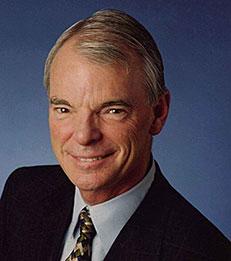Opinion
A Hard Look at a Soft Global Economy
—


...an honest look at the sorry state – and unpromising trajectory – of the global economy will, one hopes, help policymakers do what’s needed.
By A. Michael Spence
The global economy is settling into a slow-growth rut, steered there by policymakers’ inability or unwillingness to address major impediments at a global level. Indeed, even the current anemic pace of growth is probably unsustainable. The question is whether an honest assessment of the impediments to economic performance worldwide will spur policymakers into action.
Since 2008, real (inflation-adjusted) cumulative growth in the developed economies has amounted to a mere 5-6%. While China’s GDP has risen by about 70%, making it the largest contributor to global growth, this was aided substantially by debt-fueled investment. And, indeed, as that stimulus wanes, the impact of inadequate advanced-country demand on Chinese growth is becoming increasingly apparent.
Growth is being undermined from all sides. Leverage is increasing, with some $57 trillion having piled up worldwide since the global financial crisis began. And that leverage – much of it the result of monetary expansion in most of the world’s advanced economies – is not even serving the goal of boosting long-term aggregate demand. After all, accommodative monetary policies can, at best, merely buy time for more durable sources of demand to emerge.
Read the full article as published in Project Syndicate.
__
A. Michael Spence is a William R. Berkley Professor in Economics & Business.
Since 2008, real (inflation-adjusted) cumulative growth in the developed economies has amounted to a mere 5-6%. While China’s GDP has risen by about 70%, making it the largest contributor to global growth, this was aided substantially by debt-fueled investment. And, indeed, as that stimulus wanes, the impact of inadequate advanced-country demand on Chinese growth is becoming increasingly apparent.
Growth is being undermined from all sides. Leverage is increasing, with some $57 trillion having piled up worldwide since the global financial crisis began. And that leverage – much of it the result of monetary expansion in most of the world’s advanced economies – is not even serving the goal of boosting long-term aggregate demand. After all, accommodative monetary policies can, at best, merely buy time for more durable sources of demand to emerge.
Read the full article as published in Project Syndicate.
__
A. Michael Spence is a William R. Berkley Professor in Economics & Business.
